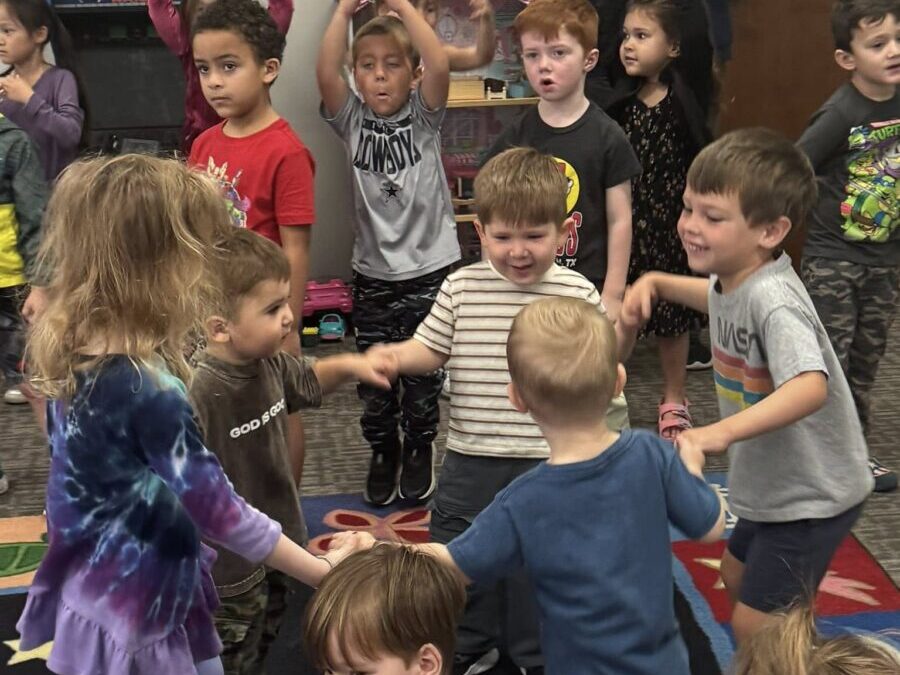Faith-Based Foundations: Character Development in Preschool Learning
Every parent watches their preschooler navigate early friendships and wonders what’s truly taking root in those formative years. When your four-year-old shares a toy without prompting or shows compassion for a crying classmate, you’re witnessing something profound: character in action. Research shows that children develop their core moral framework between ages three and seven, making these preschool years absolutely critical for building character and faith that lasts a lifetime.
At Castle Creek Christian Academy, we understand that character education isn’t just another curriculum add-on. It’s the foundation upon which all meaningful learning occurs. We’ve dedicated ourselves to integrating biblical principles into preschool learning in ways that feel natural, engaging, and developmentally appropriate for young children who are just beginning to understand their place in the world.
The beauty of faith-based character development lies in its practicality. Children don’t need abstract theology lessons; they need concrete examples of kindness, honesty, and respect lived out daily in their classrooms.

Why Biblical Principles Work for Young Learners
Young children think in stories, not systems. They grasp concepts through relationships and experiences rather than lectures. This perfectly aligns with how biblical principles are taught through parables, narratives, and real-life applications. When a teacher shares the story of the Good Samaritan before discussing how we help friends who fall on the playground, preschoolers make immediate, meaningful connections.
Studies from the Child Development Institute reveal that children who receive consistent character education show 23% higher rates of prosocial behavior compared to peers without structured moral instruction. This isn’t about enforcing rigid rules; it’s about cultivating hearts that naturally lean toward goodness. Biblical principles provide a time-tested framework that addresses universal virtues like compassion, integrity, and perseverance in language that resonates across generations.
The integration works because it meets children where they are developmentally. Preschoolers are concrete thinkers who need to see concepts in action. When teachers model forgiveness by working through conflicts gently or demonstrate generosity through sharing classroom resources, children absorb these lessons in real time.
Creating Character-Rich Learning Environments
Building character through biblical principles requires intentionality in every aspect of the preschool day. Morning circle time becomes an opportunity to practice gratitude when children share something they’re thankful for. Art projects transform into lessons about creativity as a gift when teachers acknowledge that each child’s unique abilities reflect how they were wonderfully made. Even snack time offers chances to discuss sharing and contentment.
Teachers weave character development into academic activities seamlessly. During literacy lessons, stories are carefully selected to highlight virtues like courage, kindness, or responsibility. Math games incorporate turn-taking and patience. Science exploration teaches stewardship of creation. This holistic approach ensures that building character isn’t confined to a single lesson but permeates the entire learning experience.
The classroom environment itself reinforces these values. Display areas celebrate when children show compassion or work hard to overcome challenges. Prayer corners offer quiet spaces for reflection appropriate to young children’s spiritual understanding. Teachers use gentle correction that focuses on helping children understand how their actions affect others, fostering empathy rather than just compliance.
Partnering With Families for Lasting Impact
Character development flourishes when home and school speak the same language. Parents receive regular communication about the biblical principles being emphasized each month, along with practical suggestions for reinforcing these concepts at home. When a child learns about honesty at school and parents acknowledge truthfulness at home, the lesson becomes part of their identity rather than just a classroom rule.
This partnership creates consistency that young children desperately need. Research from the Harvard Graduate School of Education confirms that children internalize values most effectively when they encounter them across multiple settings with caring adults who model them authentically.
Your child’s character is being shaped right now, in these precious preschool years. At Castle Creek Christian Academy, we’re committed to partnering with you to ensure that biblical principles form the foundation of that development. Contact us today to schedule a tour and discover the Castle Creek difference in action. We’d love to show you how we’re building more than just students—we’re nurturing compassionate, principled people who will make a positive impact on their world.
